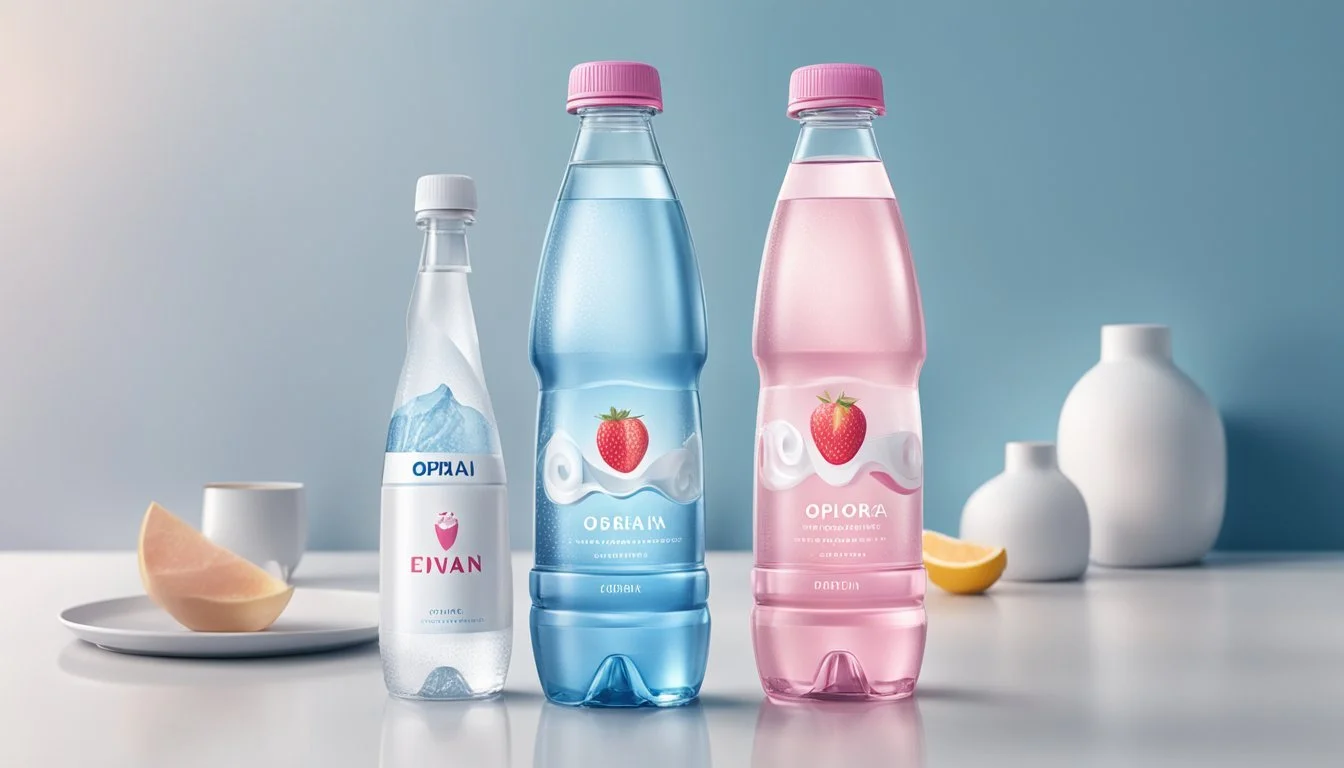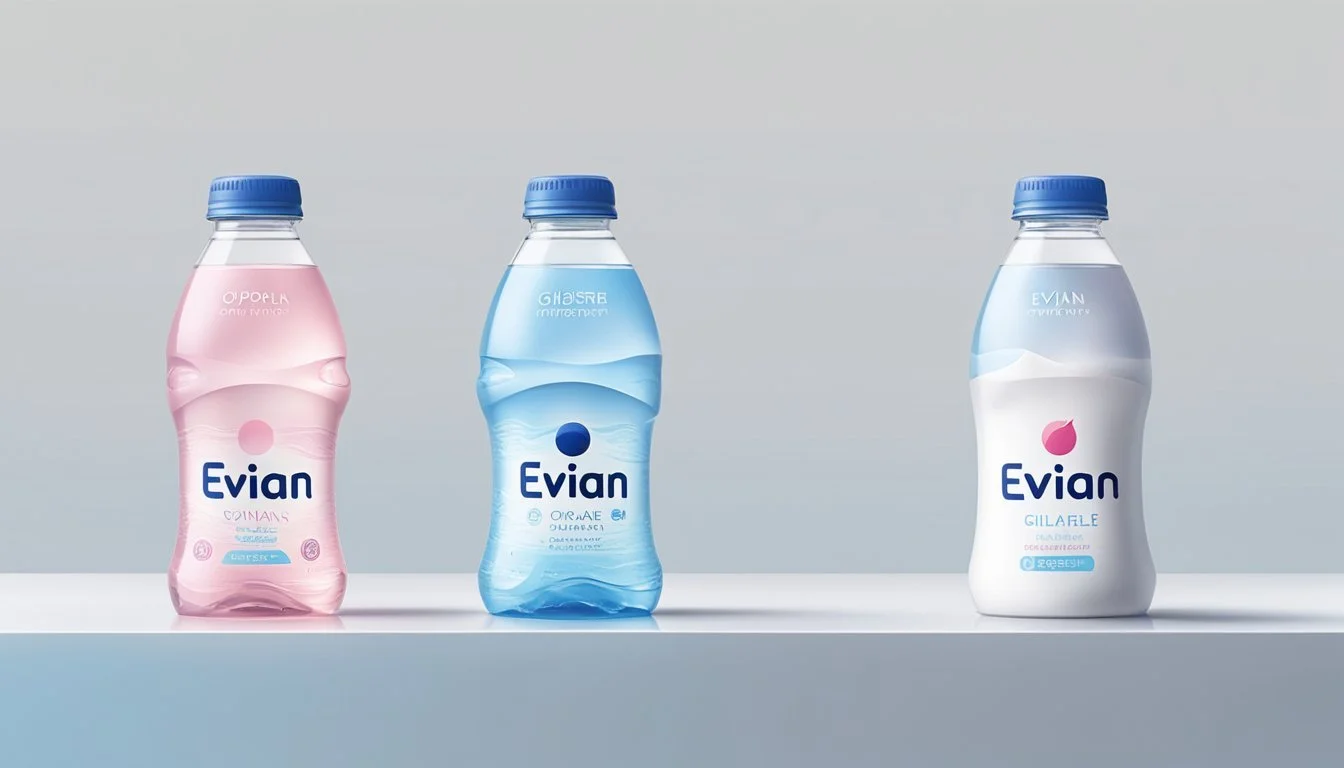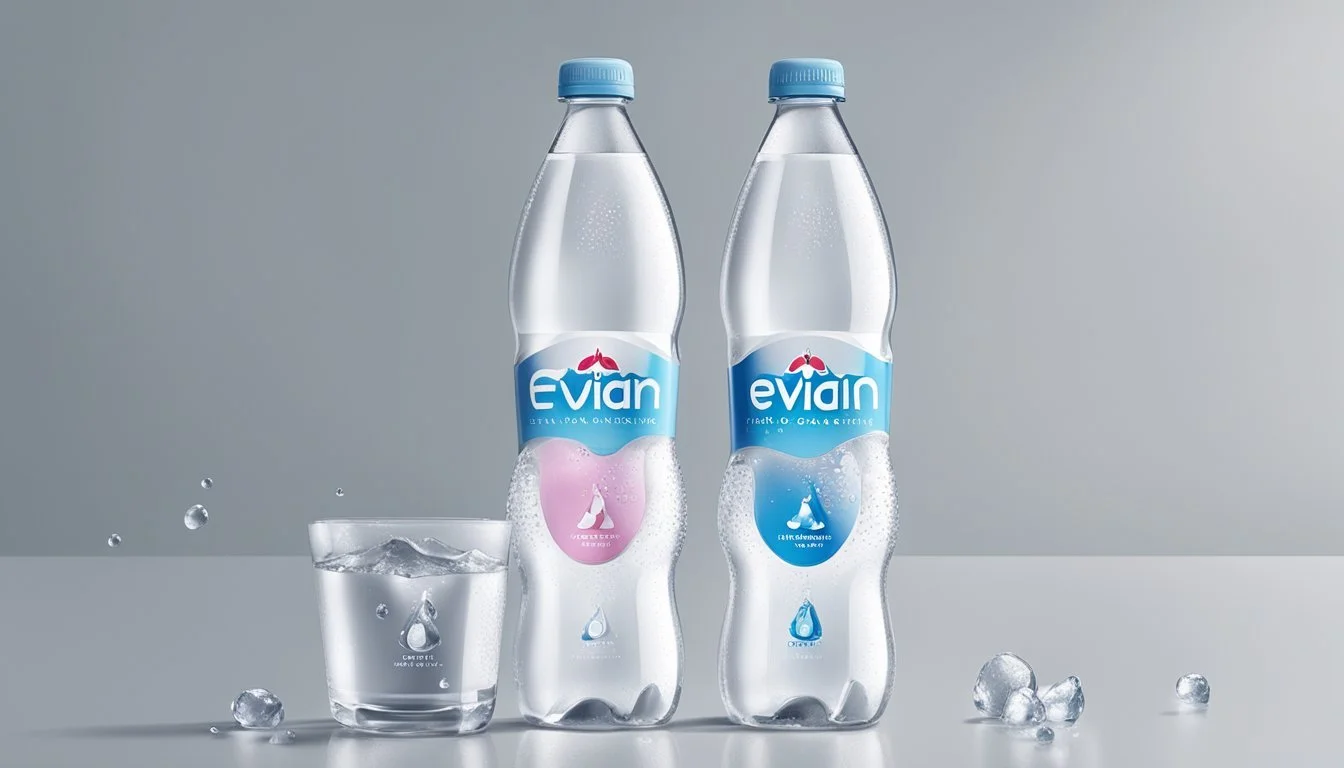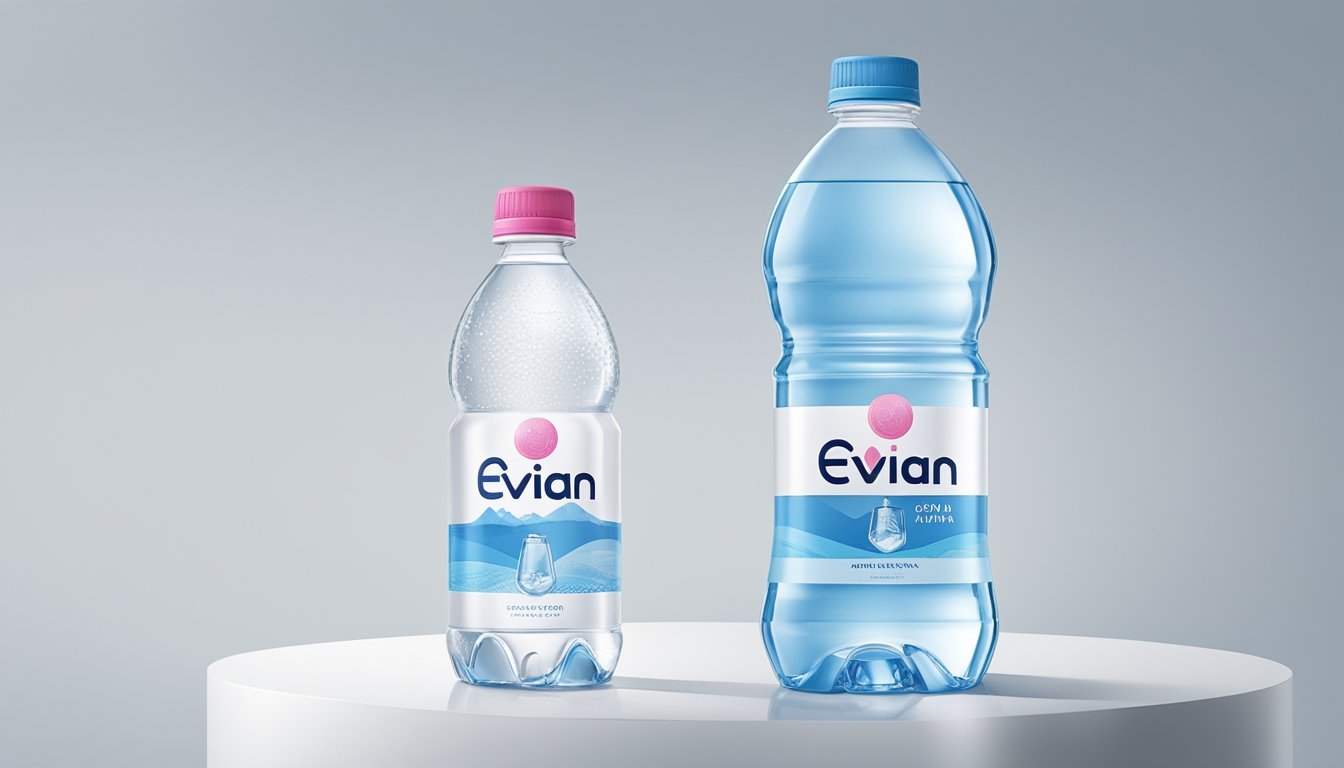Evian vs. Ophora
Comparing Premium Bottled Waters
When it comes to bottled water, discerning consumers often gravitate towards brands that promise purity and exceptional taste. In the debate of Evian vs. Ophora, both brands have their unique attributes that set them apart. Evian, sourced from the French Alps, is renowned for its mineral-rich composition and pristine source. On the other hand, Ophora claims to provide highly oxygenated water, captured from natural springs and infused with extra oxygen for better hydration.
For those with a preference for a classic and trusted brand, Evian's reputation for quality and taste might be the deciding factor. Its naturally filtered water boasts a balanced mineral content that many find appealing and refreshing. Meanwhile, Ophora positions itself as a premium option, emphasizing modern technology to enhance the water’s oxygen levels, which some say can improve metabolic rates and overall hydration efficiency.
While both brands offer premium hydration experiences, the choice between Evian and Ophora ultimately hinges on individual preferences regarding taste, mineral content, and perceived health benefits. For a mineral-rich option with a longstanding reputation, Evian remains a top pick. Conversely, those looking for the added benefits of oxygenated water might find Ophora to be the better choice.
Understanding Bottled Water
Bottled water has become a staple for many, prized for its convenience and perceived quality. We'll explore the essentials of hydration, compare bottled water to tap water, delve into health and safety regulations, and examine the environmental impact of bottled water.
The Essentials of Hydration
Water is vital for all bodily functions, from regulating temperature to maintaining cell health. Adequate hydration supports digestion, circulation, and nutrient absorption. Individuals should aim for daily water intake that matches their activity level and environmental conditions. Consuming bottled water can ensure a consistent intake of clean and mineral-rich fluid, especially in areas where the tap water quality might be questionable.
Bottled Waters vs. Tap Water
Bottled water often claims to be superior due to filtration and mineral enhancement processes. Brands like Evian and Ophora tout unique mineral compositions. On the other hand, many municipalities provide high-quality tap water adhering to strict regulations. Economic and environmental factors also play a role, with tap water typically being more cost-effective and less impactful on the environment.
Bottled Water Tap Water Cost Higher Lower Convenience Portable Home-based Quality Variable per brand Consistent, regulated Environmental Impact Significant (plastic waste) Lower impact (no packaging)
Health and Safety Regulations
The FDA oversees bottled water safety, requiring it to meet standards similar to the EPA's for tap water. Tests for contaminants such as PFAS chemicals are mandatory, ensuring bottled water is free from harmful substances. However, some studies have found variable compliance among brands. Bottled water can be a safer option in regions with poor municipal water quality but requires consumers to choose reputable brands.
Environmental Impact
The environmental footprint of bottled water is considerable. Plastic waste, energy consumption, and carbon emissions contribute significantly to environmental degradation. Bottled water production involves extracting large amounts of groundwater, sometimes leading to local shortages. Recycling programs and the use of biodegradable materials are partial remedies but do not fully address the problem. Advocating for reusable bottles and improvements in tap water infrastructure can help mitigate these issues.
Brand Profiles
Evian and Ophora are two distinct bottled water brands, each with unique attributes that set them apart. From Evian’s origins in the French Alps to Ophora’s innovative water technology, both brands offer exceptional hydration options.
Evian: From the French Alps
Evian water is sourced from the French Alps, specifically the Cachat Spring. The water filters through layers of glacial sand over a period of 15 years, absorbing minerals like calcium and magnesium.
The brand markets itself as premium and emphasizes purity and natural mineral content. Its bottle design often features a stylish, minimalist aesthetic.
Evian’s connection to the French Alps boosts its image. Their advertising campaigns often highlight themes of youth and sustainability, reflecting their target demographic.
Ophora: A New Contender
Ophora sets itself apart with advanced water purification technology. This brand focuses on oxygen-rich, alkaline water designed to support optimal hydration and wellness. The water undergoes micro-cluster filtration and oxygenation processes to enhance its purity and health benefits.
The sources for Ophora water are carefully selected for low contaminant levels. This adds to its appeal among health-conscious customers.
Ophora’s packaging also aims to be eco-friendly, aligning with modern sustainability trends. Despite being relatively new, this brand aims to carve out a niche in the premium bottled water market.
Water Source and Quality
Evian and Ophora have unique approaches to sourcing and treating their water, which affects taste and potential health benefits. This section explores the origins and purification methods for each brand and examines the mineral content that distinguishes them.
Evian's Natural Spring Water Origins
Evian water is sourced from the Cachat Spring near Évian-les-Bains, nestled in the French Alps. This water is naturally filtered through a glacial sand aquifer, which takes approximately 15 years. This natural filtration process imbues Evian with a balanced mineral composition that includes magnesium, calcium, and bicarbonates. The consistent composition and purity from this underground spring are central to Evian’s reputation for quality and its luxurious brand image.
Ophora's Purification and Enhancement Process
Ophora Water uses advanced purification techniques to create its product. Unlike Evian’s natural spring source, Ophora water undergoes a multi-stage purification process, including reverse osmosis and ozone treatment. This ensures the removal of impurities and contaminants. After purification, the water is restructured and enhanced with dissolved oxygen and a blend of minerals to optimize its health benefits. This meticulous process aims to produce water that is not only pure but also promotes better hydration and overall wellness.
Mineral Content and Health Benefits
Evian’s water contains naturally occurring minerals such as calcium (80 mg/L) and magnesium (26 mg/L), contributing to its smooth taste and potential health benefits, such as supporting bone health and muscle function.
Ophora’s enhanced water usually features added minerals focused on maximizing hydration and physiological benefits. These minerals often include magnesium, potassium, and added oxygen to potentially improve energy levels and cellular health. The enhanced mineral profile is intended to offer more than just hydration, aiming for a functional health benefit.
Choosing between Evian and Ophora often comes down to personal preference regarding natural sources versus enhanced purity and mineral content. Evian provides a naturally occurring balance of minerals, while Ophora offers innovative purification and mineral enhancement. Both have their unique selling points and health benefits.
Tasting Notes
Evian and Ophora present unique flavor profiles and experiences. This includes differences in both taste and aftertaste, which are highlighted in their mouthfeel.
Flavor Profile: Evian vs. Ophora
Evian is sourced from the French Alps and is known for its mineral content. This gives it a slight earthy taste, often described as smooth and refreshing. It carries a hint of natural salts, which contribute to a balanced flavor without being overpowering.
Ophora prides itself on its ultra-pure water, given their advanced filtration techniques. They offer a clean, almost neutral taste with very subtle mineral notes. Ophora’s flavor profile is crisp, making it exceptionally pure and light on the palate.
Aftertaste and Mouthfeel
Evian has a lingering mineral aftertaste, which some find pleasant and refreshing. This slight saltiness also adds to the texture, providing a moderately rich mouthfeel. The water has a smooth consistency, ensuring a satisfying drink without any harshness.
Ophora offers a very clean aftertaste, with minimal residual flavor. This purity contributes to a light, almost airy mouthfeel. The water feels exceptionally soft, making it easy to drink in larger quantities. The absence of strong mineral aftertaste makes it appealing for those who prefer a very clean water taste.
Physicochemical Properties
Evian and Ophora are renowned for their unique physicochemical properties, including pH levels and the content of electrolytes and ions. Understanding these properties is crucial for comparing the two brands.
pH Levels and Alkality
Evian water boasts a slightly alkaline pH of 7.07, making it marginally above the neutral pH of 7. This characteristic is often highlighted for those seeking to balance their body’s pH.
Ophora, on the other hand, is marketed as alkaline water with a pH that typically ranges around 8 to 9. This higher alkalinity is touted for its purported benefits to health, such as neutralizing acid in the bloodstream and enhancing hydration.
Electrolytes and Ion Content
Evian is rich in essential minerals like calcium, magnesium, and potassium. These electrolytes contribute to its distinct taste and are beneficial for maintaining hydration and muscle function.
Ophora doesn't just stop at basic mineral content. It emphasizes a comprehensive blend of electrolytes and ions, including sodium and bicarbonate. This combination is designed to improve bodily functions, especially during physical activities.
Bottling and Packaging
Evian and Ophora both emphasize differing approaches to bottling and packaging, with distinct choices in materials and sustainability practices, impacting their environmental footprint and consumer preference.
Sustainability in Bottling Practices
Evian has committed to becoming carbon neutral and uses recycled plastic (rPET) for the majority of their bottles. This reduces plastic waste and lowers carbon emissions related to bottle production.
Ophora, conversely, focuses on minimizing their environmental footprint by employing advanced purification processes and reusable packaging options.
Both brands highlight the significance of sustainable bottling practices, catering to environmentally conscious consumers.
Material Types: Plastic vs. Glass Bottles
Evian: Primarily uses plastic bottles, which are convenient and lightweight. The use of rPET in their bottles aims to mitigate the environmental impact traditionally associated with plastic packaging. However, plastic can still pose issues related to BPA and recycling processes.
Ophora: Often opts for glass bottles, perceived as a more environmentally friendly choice. Glass is fully recyclable and doesn't contain BPA, offering a safer alternative for storing water. Nonetheless, glass is heavier, which can impact transportation costs and carbon emissions.
Both material choices have advantages and drawbacks, reflected in their sustainability goals and practicality for consumers.
Comparative Analysis
Evian and Ophora are two popular bottled water brands that have distinct market presences and varying consumer preferences. Understanding these differences sheds light on why consumers might choose one over the other.
Market Presence and Brand Perception
Evian is internationally recognized, positioning itself as a premium brand. It sources its water from the French Alps, which contributes to its reputation for purity and quality. Evian has successfully leveraged marketing campaigns emphasizing youth and sustainability, including bottles made from 100% recycled plastic.
Ophora, while lesser-known globally, caters to a niche market. It is marketed as ultra-purified, oxygenated water with health-boosting properties. The brand focuses on offering a product tailored to health-conscious consumers, promising enhanced hydration and potential wellness benefits. Despite its limited reach, Ophora’s specialized appeal garners a loyal customer base.
Brand Market Presence Reputation Evian Global Premium, Pure, Sustainable Ophora Niche Health-focused, Ultra-purified
Consumer Preferences
Consumers of Evian often prioritize the brand's established reputation for quality and purity. Its consistent availability in international markets makes it a convenient and trusted option. The emphasis on sustainability also appeals to environmentally conscious buyers.
Ophora attracts a different segment, prioritizing health and enhanced water benefits. Consumers opting for Ophora are typically more interested in the potential wellness advantages of oxygenated water, often willing to pay a premium for these features. This preference showcases a shift towards functionality rather than just taste or basic hydration.
In conclusion, Evian's global reach and premium image contrast with Ophora's niche market and health-centric appeal, offering consumers varied choices based on their priorities.
Final Thoughts
When comparing Evian and Ophora, water drinkers often prioritize quality and hydration.
Evian is well-regarded for its purity and comes from a natural spring in the French Alps. It has a pH level of 7.07, making it slightly alkaline. It is also known for its commitment to using 100% recycled PET plastic in its bottles.
Ophora is marketed as super-oxygenated water, which claims to enhance hydration and support overall wellness. Its focus on enhanced oxygen levels may appeal to those looking for more than just basic hydration.
Feature Evian Ophora Source French Alps Various springs pH Level 7.07 Varies by release Sustainability Recycled PET plastic Varies Special Feature Natural mineral content Super-oxygenation
Both brands offer high-quality options for water enthusiasts. While Evian is praised for its natural mineral content and sustainability efforts, Ophora aims to deliver enhanced hydration through super-oxygenation.
Choosing between these two ultimately depends on personal preference and specific hydration needs. Water drinkers looking for natural, mineral-rich water might lean towards Evian, whereas those seeking potential health benefits of oxygenated water might prefer Ophora.
More About Evian
Evian vs Mountain Valley Spring Water: Which Bottled Water is Better?
Evian vs Richard's Rainwater: Which Bottled Water is Better?
Evian vs Whole Foods Italian Still Mineral water: Which Bottled Water is Better?









